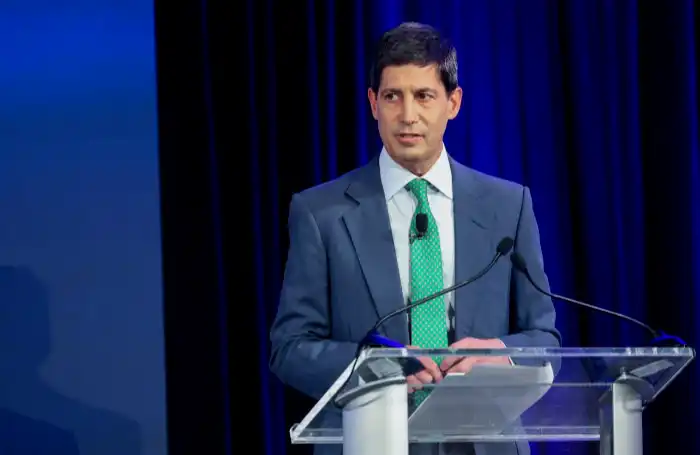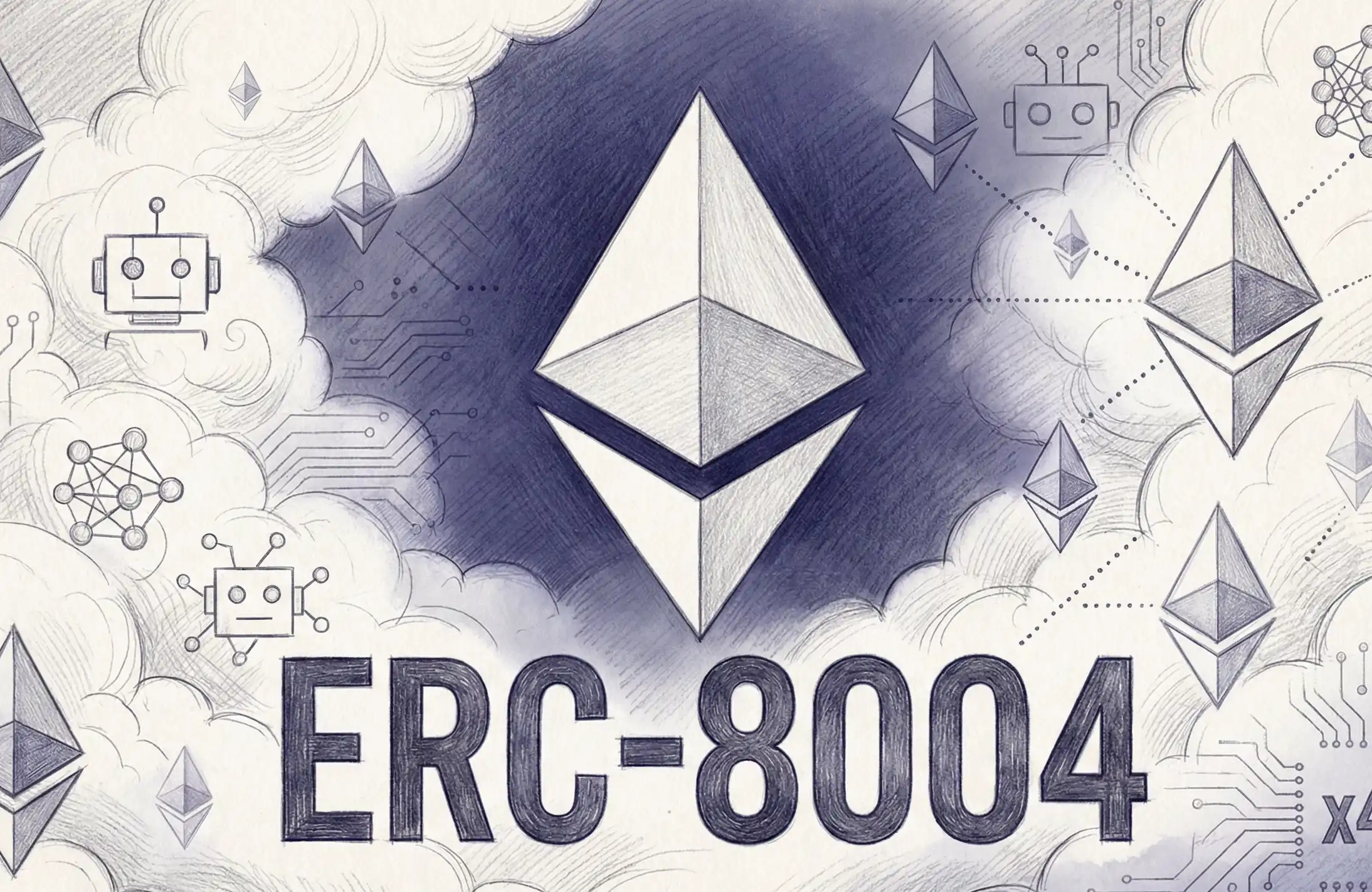While Talking Sale, Circle Bulls Towards IPO: What Is It Up To?
On May 28, according to Circle's IPO filing, Circle acquired RWA issuer Hashnote in January 2025 for $99 million in cash and approximately 2.9 million fully diluted common shares (total value of about $998 million). Hashnote was launched with a $5 million investment from Cumberland Labs and is the issuer of U.S. Yield Coin (USYC), which has issued $1.3 billion worth of USYC tokens, making it the largest tokenized U.S. Treasury product in the market.
This acquisition information undoubtedly further increased Circle's valuation.
Approximately a month ago, Circle announced the launch of its initial public offering (IPO) plan, but due to external policy environment changes, the process was forced to be delayed. During this time, Circle simultaneously engaged in deep negotiations with potential buyers, including Coinbase and Ripple, regarding acquisition matters. However, a consensus was not reached due to differences in valuation amounts. Circle is not eager to sell. Its strategic intent is clear: on one hand, it hopes to validate and obtain a higher company valuation through a priced IPO in the public market; on the other hand, it is putting pressure on potential acquirers, hoping they will further increase their offer. Essentially, Circle is engaged in a savvy "price comparison" game, aiming to maximize shareholder value.
Sale Fails, Pivot to IPO
This is not Circle's first attempt to go public. At the end of 2022, it tried to go public by merging with a Special Purpose Acquisition Company (SPAC) with a valuation of $9 billion, but because the SEC did not approve the prospectus in time, the merger was ultimately terminated, resulting in a loss of over $44 million. Since then, Circle has adjusted its strategy, gradually moving closer to financial centers. Last year, it relocated its headquarters from Boston to One World Trade Center in New York, further integrating into the global financial hub.
Currently, the timeline for Circle's acquisition and IPO submission is as follows:
On April 2, Circle submitted its S-1 filing to the SEC, formally launching the IPO process, with plans to list on the New York Stock Exchange;
On April 5, possibly due to Trump's tariffs, Circle announced it would delay the IPO process;
On May 1, according to Bloomberg, insiders revealed that Ripple had offered to acquire competitor stablecoin provider Circle for $40 billion to $50 billion, a bid that was considered too low and rejected.
On May 20, it was reported by The Block that stablecoin issuer Circle is seeking a buyer with a valuation of at least $50 billion. The ongoing sale negotiations reportedly involve its long-term partner Coinbase and Ripple, which has recently become a stablecoin competitor. The San Francisco-based startup is seeking to go public while also pursuing this acquisition.
On May 27, according to pymnts, stablecoin issuer Circle denied the media reports of ongoing sale negotiations and stated that it is still moving forward with its April-filed initial public offering plan. A Circle spokesperson stated in a release, "Circle is not seeking a sale. Our long-term goal remains unchanged."
On May 27, stablecoin USDC issuer Circle filed for listing with the New York Stock Exchange. The plan is to issue 24 million Class A shares, with 9.6 million shares from the company and 14.4 million shares from shareholders. The expected price range is between $24 and $26 per share, with the trading symbol CRCL.
According to the S-1 registration statement, JPMorgan and Citigroup will act as lead underwriters, and the market expects Circle's valuation to reach $50 billion, almost halving from the $90 billion valuation proposed in the 2022 IPO application. Therefore, it is no surprise that Circle has been seeking acquisition negotiations with Coinbase and Ripple, hoping to transact a sale at a higher valuation.
Coinbase has a long-standing partnership with Circle, jointly founding the Centre Consortium in 2018 to manage USDC. Although it was later dissolved, the two parties maintained a revenue-sharing agreement. In 2024, Coinbase received $910 million from the interest income generated by USDC reserves, reflecting its financial reliance on Circle. Ripple, which has recently become a stablecoin competitor, has also shown interest in Circle.
This series of actions by Circle has sparked widespread discussion in the community. Despite Ripple's valuation proposal of $40-50 billion in April 2025 being rejected by Circle as undervalued, reports suggest that Ripple, in informal discussions with Coinbase, has offered a price range of $90-110 billion.

Moreover, due to intense market competition, some believe that if Ripple were to acquire Circle, it might have a negative impact on USDC, potentially leading to Tether (USDT) gaining more market share.

Some speculate whether Circle is leveraging the competition between Coinbase and Ripple to drive up the price, based on their historical relationship through the Centre Consortium, which they co-founded in 2018.

Former Coinbase member and current vectordao member @yiryan also shared his perspective on X, stating that Coinbase should acquire Circle and is likely to do so. USDC is Coinbase's second-largest revenue source, but due to the partnership with Circle, revenue attribution is limited. Circle controls the protocol layer, focusing on expanding the overall market cap, while Coinbase aims to fully capture USDC revenue, achieving revenue consolidation and protocol control. If Coinbase acquires Circle, it can gain full revenue, product synergy, and regulatory advantages. In the long run, acquisition is a reasonable and necessary strategic choice, with the key factor being the price.
If Ripple or Coinbase eventually offers a valuation exceeding 5 billion USD, Circle may also withdraw its IPO application and opt for a dual-track process to sell at the best bid between the two, akin to the case of office space startup WeWork.
Dual-Track Pricing, Is Circle Seeking to Maximize Benefits?
In 2010, co-founders Adam Neumann and Miguel McKelvey opened the first WeWork in the SoHo district of New York City, allowing anyone from freelancers to large enterprises to rent office space and desks.
In August 2019, WeWork publicly filed for an IPO, but its filing revealed significant losses. According to media reports, it had revenue of 1.8 billion USD in 2018, with losses of 1.9 billion USD; in the first half of 2019, it had revenue of 1.5 billion USD and losses of 690 million USD. Following scrutiny by WeWork's board members and investors regarding its leadership (including self-dealing allegations) and financial issues, Neumann resigned as CEO. Previously, WeWork delayed its IPO last week and decreased its expected valuation from 47 billion USD to 10 billion USD. Given its severe financial issues, its post-IPO valuation is likely to plummet rapidly, making a direct acquisition by a major shareholder seem more cost-effective compared to going public.
One month later, WeWork submitted a request to federal regulators to withdraw its IPO plan. Following the IPO cancellation, SoftBank made an additional $8 billion investment and took over WeWork in October 2019.
When WeWork received investments from SoftBank in November 2018 ($3 billion) and January 2019 ($2 billion), its valuation soared from $20 billion to $47 billion. In other words, SoftBank's investment increased WeWork's valuation by $27 billion. Even the $20 billion starting point in 2018 was set by SoftBank, which invested $4.4 billion in WeWork's Series G round in 2017 through its $100 billion Vision Fund. SoftBank's CEO, Masayoshi Son, later stated that his investment in WeWork was "foolish" after the IPO withdrawal and valued WeWork at only $29 billion.

For WeWork, the IPO meant subjecting the company to more authoritative, standardized, and detailed scrutiny to properly price its true value, thus revealing the hidden valuation and governance issues that ultimately led to SoftBank's takeover.
SoftBank's decision reflects the sunk cost fallacy. The sunk cost fallacy compels investors to continue investing in a losing project because they have already invested time, effort, or money into it. SoftBank's continued investment in WeWork was more driven by avoiding admitting failure rather than recognizing WeWork's future potential, and the additional $8 billion investment did not address WeWork's fundamental issues. Furthermore, Son referred to the WeWork investment as a "scar for life" at the 2023 shareholder meeting but chose to continue support, reflecting potential psychological influences.
Circle's IPO prospectus also hints at several issues.
First is the excessive executive compensation, with the CEO's total compensation exceeding $12 million, the CFO's total compensation at $5.2 million, and other executives such as the Chief Strategy Officer, President and Chief Legal Officer, Chief Product and Technology Officer earning annual salaries between $4 million and $5 million.
Secondly, Circle's business model relies on the net interest margin, and it faces significant competition in the market. Its main competitor Tether (USDT) leads with a market capitalization of over $140 billion, PayPal launched its stablecoin in 2023, and banking giants like JPMorgan are also exploring the blockchain space. In the prospectus, Circle candidly lists these competitors, acknowledging the complex market environment. Financially, there is evidence of a decline in profitability in 2024, with net revenue and adjusted EBITDA decreasing by 42% and 28%, respectively.
Finally, Circle relies heavily on Coinbase as a distribution channel, with most of its net interest income going to Coinbase. Coinbase earned $908 million in 2024 from USDC-related activities, accounting for approximately 13.8% of its total revenue. So, if investors want to own the leader, a better choice would be to directly buy Coinbase.
Therefore, considering various factors, the IPO valuation ultimately settled at $5 billion. As for whether Circle will proceed with the IPO process, be acquired, or, it may depend on which party—the acquirer or the market—shows greater sincerity.
Welcome to join the official BlockBeats community:
Telegram Subscription Group: https://t.me/theblockbeats
Telegram Discussion Group: https://t.me/BlockBeats_App
Official Twitter Account: https://twitter.com/BlockBeatsAsia











